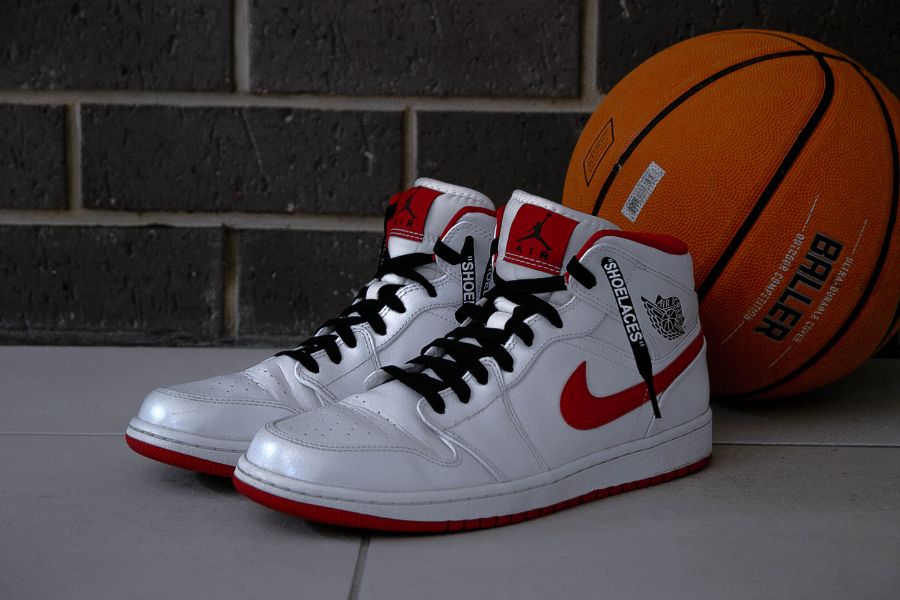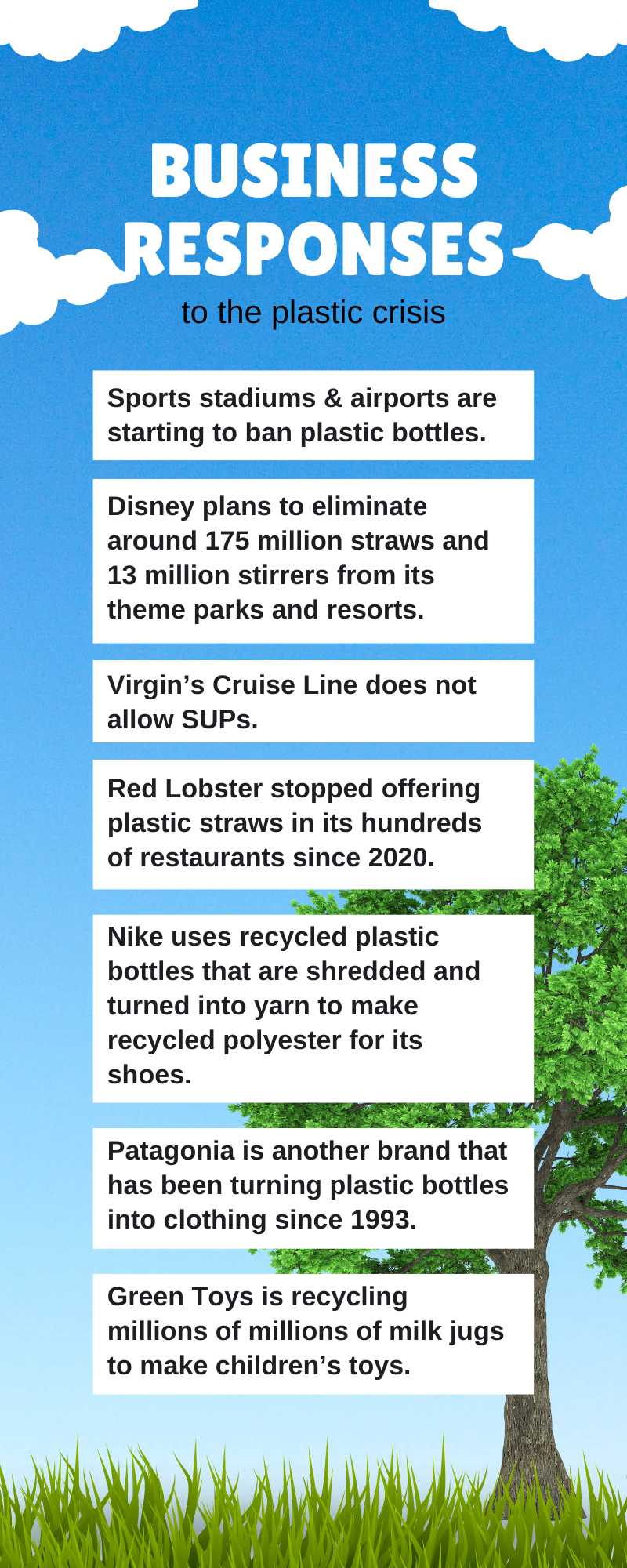Companies can provide sustainable plastic product and packaging options and alternatives, in addition to educating consumers to make environmentally friendly choices. Further, companies can reduce packaging that is not essential and educate consumers about recycling, reusable items, and compostable materials. Behavioral change can move from single-use models toward circularity (Sustainable Lifestyles and Education Programme, n.d.).
In the United States and around the world, many organizations and businesses have already started initiatives to make their places more environmentally friendly.
- Stadiums/venues: University of Colorado Stadium, The Am in St. Augustine, and Hard Rock Stadium are just few examples of venues that banned or are phasing out plastic in their sports stadiums (Can Manufacturers Institude, n.d.).
- Airports: LAX, Van Nuys, and San Francisco International Airports are planning to eliminate water bottles, and prohibiting the sale of beverages in plastic bottles (Can Manufacturers Institude, n.d.).
- Companies: Convenience store Choice Market, Facebook, Mom’s Organic Market, Sony Pictures Entertainment and many others are making strides towards a more sustainable environment in their business place by eliminating or reducing SUPs (Can Manufacturers Institude, n.d.).
- Resorts/hotels/cruises: Virgin’s Cruise Line does not allow SUPs, and Steamboat Resort is stopping the sales of SUPs bottles (Can Manufacturers Institude, n.d.).
- Brands: John Ball Zoo no longer serves plastic bottles since 2020. They were replaced by canned beverages or fountain drinks. Water brand SOURCE chose cans for its sparkling and still water. The brand no longer produces plastic packaging (Can Manufacturers Institude, n.d.).
- The Danish Carlsberg’s beer holders have become 76% less harmful to the environment. The company stopped producing plastic multipack rings and started using holders with recyclable glue instead (Vuleta, 2022).
- Sodexo, a French food services and facilities management company, stopped using plastic bags and stirrers at its 13,000 locations. The company also stopped offering plastic straws and believes this step will prevent about 245 million SUP items from ending up in the landfills or natural environments (Vuleta, 2022).
- Red Lobster, an American casual dining restaurant, stopped offering plastic straws in its hundreds of restaurants since 2020. The food restaurant plans to eliminate 150 million plastic straws consumption by its business (Vuleta, 2022).
- Disney is also banning some SUPs from its conglomerate. For instance, Disney plans to eliminate around 175 million straws and 13 million stirrers from its theme parks and resorts. The entertainment business plans banning polystyrene cups and sell reusable bags rather than the plastic ones (Vuleta, 2022).
- Nike uses recycled plastic bottles that are shredded and turned into yarn to make recycled polyester for its shoes, diverting 1 billion plastic bottles from landfills each year (Miller, 2021).
- Patagonia is another brand that has been turning plastic bottles into clothing since 1993 (Parry, 2021).
- Green Toys is recycling millions of millions of milk jugs to make children’s toys. Their toys are not only completely safe, but they are also eco-friendly with biodegradable packaging (Parry, 2021).
Educational places are a good place to start to educate people about the harm of SUPs to the environment. Students, instructors, and staff can advocate for their schools and universities/colleges to reduce or limit SUPs products. Collectively, they can work on short- and long-term sustainability plans and timelines to eliminate SUPs in the environmental footprint. Some universities and schools already took some steps in this direction (i.e., University of Virginia; New York University; Vanderbilt University; George Washington University; Georgeham Primary School – the first school to achieve plastic free status in the United Kingdom) (Can Manufacturer Institute, n.d.; The Guardian, 2018).



